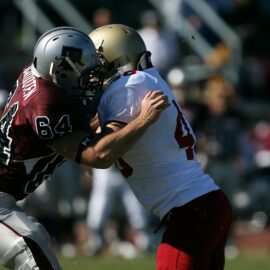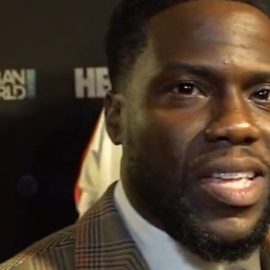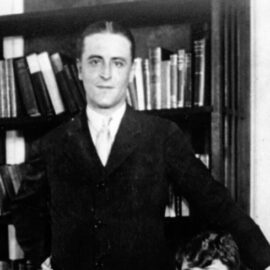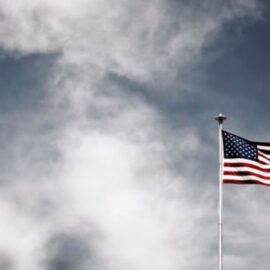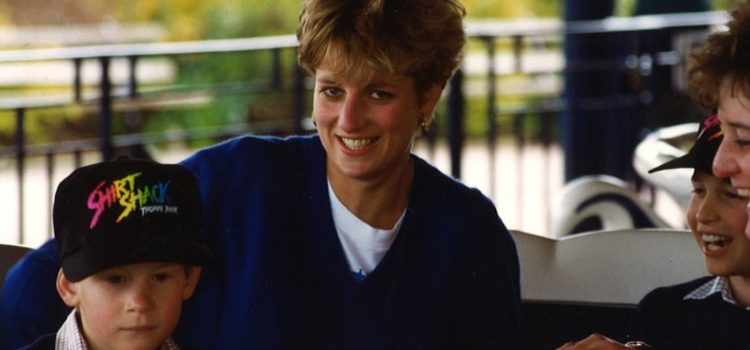
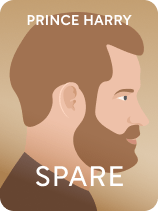
This article is an excerpt from the Shortform book guide to "Spare" by Prince Harry. Shortform has the world's best summaries and analyses of books you should be reading.
Like this article? Sign up for a free trial here.
What was Prince Harry and his mother Diana’s relationship like? How did Harry cope with her unexpected death in 1997?
In Spare, Harry describes his relationship with his mother as loving, but her unfortunate death in a car crash left him in pain. It wasn’t until years later in therapy that he finally confronted the trauma he endured after her death.
Read below to learn more about Prince Harry and Diana’s relationship.
How Harry Remembers Diana
The family member that Harry talks about most is the one who was in his life for the least amount of time: his mother, Princess Diana. Harry’s parents separated in 1992, and officially divorced in 1996. Princess Diana died in a car crash one year later, in 1997, when Harry was only 12.
Prince Harry and Diana’s relationship is remembered fondly, and he speaks frequently about the pain of her absence. His intense love for Princess Diana, and the trauma he experienced as a result of her death, are recurring themes throughout the book.
(Shortform note: Harry is not the only one who remembers Princess Diana fondly—25 years after her death, she’s still one of the most popular members of the British Royal Family. Even people born after she passed away hold a generally positive opinion of Princess Diana, and they have roughly the same level of familiarity with her as they do with living royals.)
Harry explains that he had problems with his memory after losing his mother—many of the anecdotes from his childhood are things that he heard about himself secondhand. He also had trouble processing and expressing his emotions, saying that until around 2014, the last time he cried about his mother’s passing was at her burial. (Shortform note: Issues with memory and emotional struggles are common responses to grief. One way to treat these effects is through counseling or therapy—we’ll explore Harry’s experiences in therapy later in this guide.)
Harry blames the press for his mother’s death—he says she got into that fatal car crash while trying to flee from reporters and photographers. We’ll discuss Harry’s issues with the press further later in this guide.
(Shortform note: The official story of Diana’s passing is that her driver was drunk and accidentally crashed the car while being chased by the press, and numerous investigations into that night’s events confirm the story. However, there are countless conspiracy theories arguing that her death was actually murder—although who supposedly orchestrated the crash, and why, change from theory to theory. It’s worth noting that Harry isn’t pushing one of those theories; he doesn’t accuse the press of killing his mother on purpose. Rather, he says the reporters chasing her created a dangerous situation that led to the fatal accident.)
Harry’s Opinion of Camilla and Diana
During Harry’s childhood, Charles was involved in an extramarital affair with a woman named Camilla Parker Bowles (who is now Charles’s wife, and therefore Queen Consort of the United Kingdom). Harry says that his father’s relationship with Camilla eventually drove his parents’ relationship apart.
(Shortform note: Reports say that Camilla’s presence had always loomed over Charles and Diana. Charles’s courtship with Diana only lasted five months before they got married, and he was evidently in contact with Camilla, who he’d previously dated in the 1970s, even then. Charles resumed his affair with Camilla in earnest in 1986—five years after he married Diana—which Diana said was a serious blow to her mental health and self-esteem. It’s worth noting that Camilla herself was also married during this time; she wouldn’t divorce her first husband, Andrew Parker Bowles, until 1995.)
Harry has mixed feelings about Camilla. He resents her for her role in breaking up Charles and Diana and says that she unwittingly played a role in Diana’s death by splitting them apart. Harry also has reason to believe that Camilla leaked private details about his life to the press and spread rumors about him in order to boost her own reputation.
(Shortform note: Charles’s former communications secretary, Kristina Kyriacou, has said Harry’s belief that Royal Family members leak stories about each other is not just untrue, but absurd. Regarding his specific accusations against the Queen Consort, Kyriacou says that she’s never heard of Camilla doing any such thing, and she can’t imagine her intentionally harming her own stepchildren’s reputations.)
However, he also admits that Camilla brings Charles a great deal of joy. While Harry and his brother William initially asked Charles not to marry Camilla, at their wedding, he’s surprised to realize that he wants both of them to be happy. He adds that Camilla might be less likely to dig into Harry’s life for more tidbits to feed the press if she’s content.
(Shortform note: William and Harry weren’t the only ones to have reservations about Charles and Camilla marrying. In 2004, a year before the couple married, public opinion on the matter seemed mixed—only around a third of Britons supported the marriage (although only 29% actively opposed it). Since then, Camilla’s reputation has remained somewhat tarnished—recent polls suggest she has an approval rating of only 39%.)
Harry’s Experiences With PTSD and Anxiety
Harry reveals that he’s experienced intense anxiety throughout most of his life. By the end of the summer of 2013, his mental health was declining sharply. He experienced alternating bouts of crippling depression and panic attacks. He developed a phobia of crowds and public spaces, but his worst fear was of cameras, with days-long anxious episodes triggered by the mere sound of a camera shutter.
Harry began spending most of his days indoors, locked in his apartment, watching old sitcoms on repeat and eating takeout. Though he sometimes went to a dinner party or a club, he says that it was never worth the anxiety and the media attention he got from doing so. When he had to go shopping, he planned his outings as if they were missions for the military: He’d have the most efficient route planned out ahead of time so that he could spend as little time as possible in the store. Harry eventually realized that he was suffering from post-traumatic stress disorder (PTSD); not just from his experiences in Afghanistan, but from a lifetime of trauma beginning with his mother’s death.
Getting Effective Therapy
Years later, during an argument, Harry lashed out in anger at his wife Meghan. She insisted that he go back to therapy and get help for his anger, anxiety, and trauma. Harry finally found a therapist that he liked, who helped him to open up about his painful experiences with his family and about how unfairly he and Meghan were being treated by the media.
This new therapist also helped Harry to remove a mental block he’d built up about his mother: Previously, he’d struggled to remember details about her, and he’d lost many memories involving her. The therapy allowed him to recall those old memories and start to process his feelings about her in a healthy way. This was a major step forward for Harry’s mental health.

———End of Preview———
Like what you just read? Read the rest of the world's best book summary and analysis of Prince Harry's "Spare" at Shortform.
Here's what you'll find in our full Spare summary:
- Prince Harry's autobiography about growing up as a member of the Royal Family
- The struggles that come from being the younger son—not the heir-apparent
- How Prince Harry deals with harassment from paparazzi and mental illness


